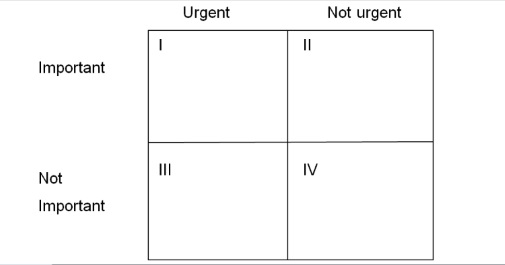Taking control of your time

Previous articles have covered the topics the mindset for success, what does prosperity mean to you (including defining your life purpose, and setting and achieving goals), and overcoming limiting beliefs. This article covers one obstacle that many people face en route towards success – how to best use the 168 hours they have each week.
In my experience in the personal development industry since 1997, the ability to manage time is a key factor in how successful someone is. In around 2002 I developed a method which I have used with all my executive and business coaching clients to help them to manage their time effectively and achieve outstanding results. Indeed, one client was the MD of a business which posted record profits for two consecutive years and was in the Sunday Times’ top 100 companies to work for.
There are two keys factors regarding time management. Firstly, how you spend your time at work, and secondly how you deal with inevitable distractions. Let’s look at each in turn.
How do you spend your time?
In around 2001-2 I was working with the MD of a music company, where around 60% of the company’s profits came from around 10 artists. He said that he spent around 25% of his time focussing on these 10 artists, and that ideally he would be spending 45% of his time. He said that the impact on profits of changing his time priorities would be around 10-20%. As a result of these answers, the coaching session became a matter of discussing how to free up sufficient time to achieve the results he wanted. Around this time I attended an excellent sales course at the Institute of Directors run by Bruce King (www.bruceking.com). He asked the audience of 100 salespeople (for whom time is money) how much time they waste or allow other people to waste for them. The average reply was about 35-40%. (I have subsequently repeated this exercise with my own audiences, and the figure is similar).
From these and similar situations, I developed a simple process which involves:
- making a list of your work activities
- noting how many hours you work in a typical week, and how many hours you spend on each of these activities
- noting how many hours you’d ideally (and realistically) work each week, and how many hours you would ideally spend on each of these activities
- looking at the differences between the current and ideal
- making changes accordingly.
For more information about this, please contact us. For many clients and course delegates, this exercise is an eye-opener, showing clearly how their time management works (or usually doesn’t work). If you do this exercise, which typically takes 15 minutes, you will have ideas about what to change. The question then becomes, “how do I make the changes I want to make?”
Making changes to your time management
There are various approaches. One key concept is linked to one of Stephen Covey’s ‘7 habits of highly effective people’, namely to put first things first. Consider the following matrix:

Many people spend time doing tasks that fall into quadrants III and IV, i.e. tasks that are not important. Successful people will usually not do this, and will do mainly quadrant I tasks. Covey found that people who are highly successful spend sufficient time doing quadrant II tasks that there are fewer quadrant I tasks – they seem to be more ahead of the game. As an example, for the music company executive, going to lunch with the top artists’ agents may have been a quadrant II task. So, please decide for yourself what your quadrant II tasks are, and spend sufficient time doing them.
Another concept is the ‘4 Ds’; do, defer, delegate or delete.
One of my favourites comes from hearing numerous clients bemoan the ‘time vampires’; those people who ask for your help (i.e. your time) at work when really they are just being lazy, wanting you to do their thinking for them. Whilst you may want to be a helpful person, many clients and course delegates report that asking the ‘time vampire’ if it can wait will lead them to either find their own solution or ask someone else. Linked to this, especially if you are a manager, is to ask your staff to bring you solutions, not problems. Encourage them to think for themselves.
Other key tips are:
- Have a master to do list, and make a ‘next day’ to do list before you leave the office, so that you can ‘hit the ground running’ the next day.
- prioritise this list and do the higher priority tasks first.
- plan your day by time slots (e.g. 8.30: interview, 9.00: sales meeting, 9.45: write report, etc
- if you frequently get unexpected interruptions, then they are not unexpected! Factor interruptions into your daily schedule.
- be ‘uninterruptable’ for certain periods, especially when you have key tasks to do.
- keep a list of what you have achieved, to help motivate you.
- be disciplined.
- Ask yourself ‘am I taking on too much?’
Summary
These simple tips will help you become more effective at work. In addition, these principles can be applied in your life generally. The work-based time management exercise can be done with your life overall – how do you currently spend your 168 hours each week, how would you like to spend them and what changes will you make?
Enjoy the benefits of your new time management skills, and do contact us if you have any questions.






